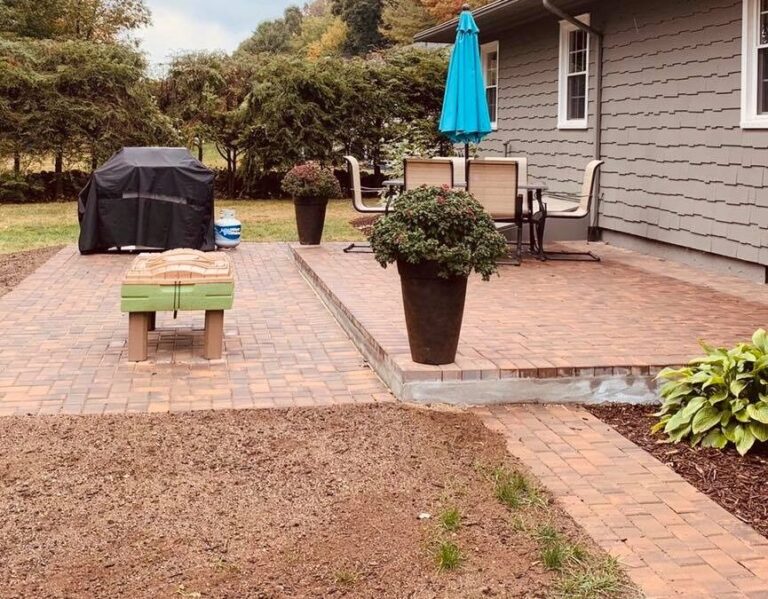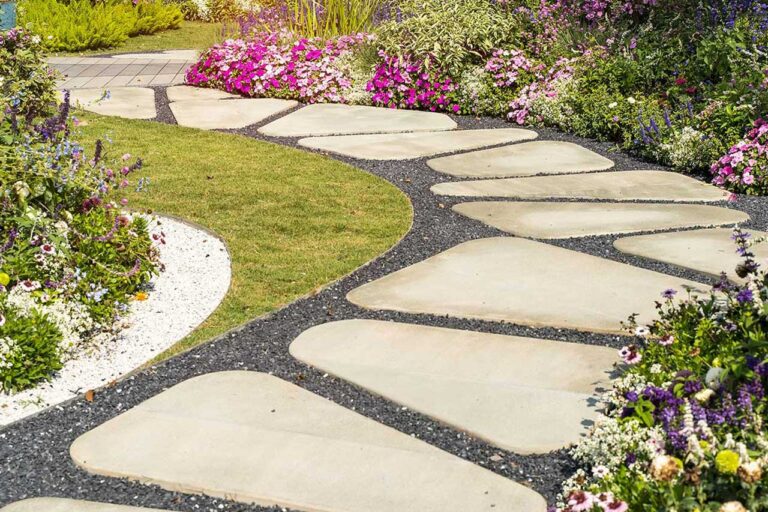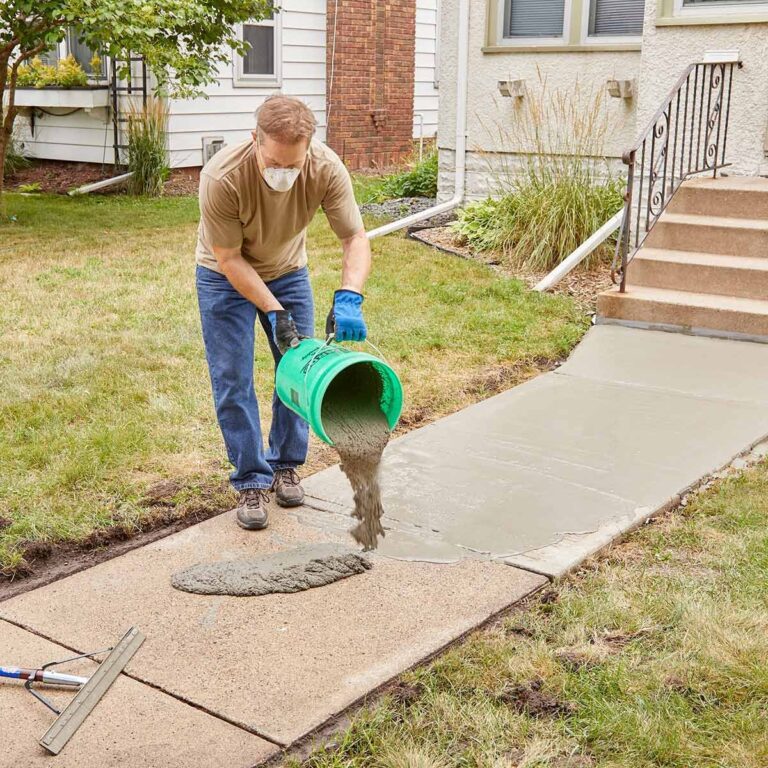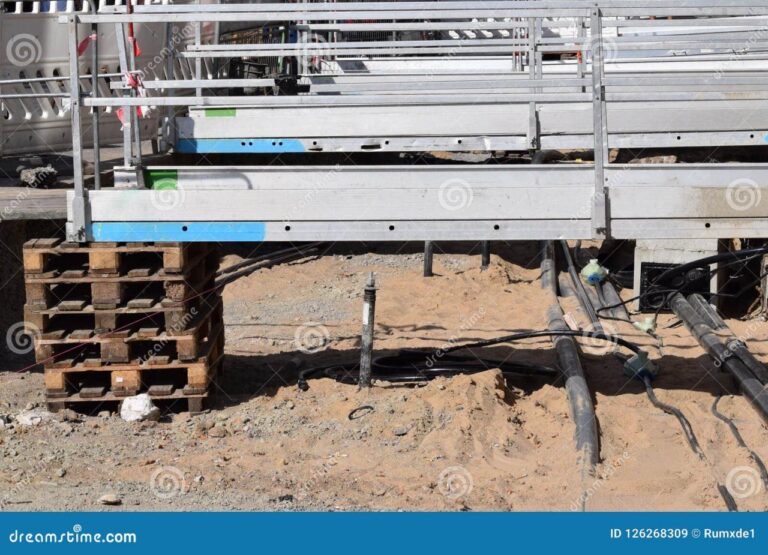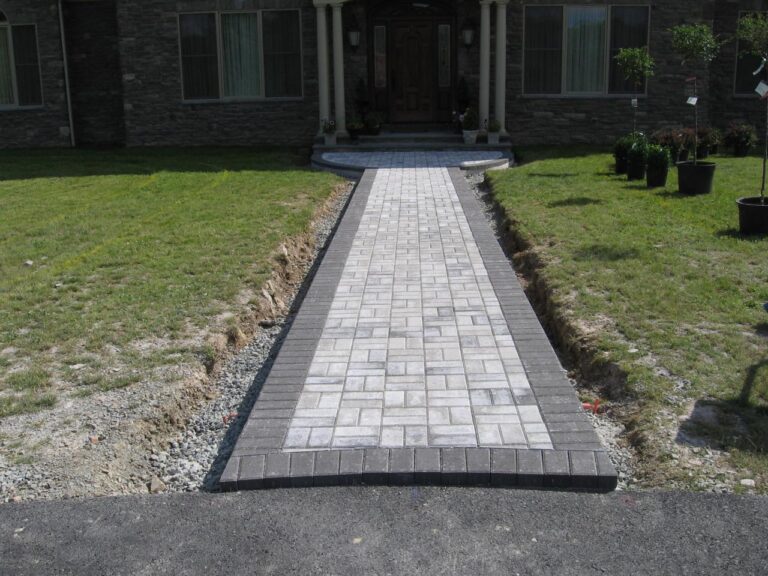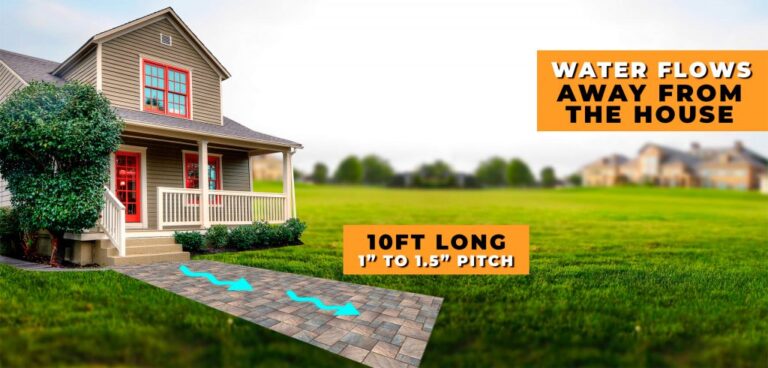Cost To Install Concrete Walkway
Cost to install concrete walkway – The cost to install a concrete walkway is a significant consideration for any homeowner or business undertaking a landscaping project. This cost varies widely depending on several factors, including the size and design of the walkway, the type of concrete used, the complexity of the installation, and regional labor rates. Understanding these variables is key to budgeting accurately and ensuring a successful project.
This comprehensive guide explores the multifaceted aspects of concrete walkway installation costs. We’ll delve into the various factors influencing the final price, from material selection and labor costs to design complexities and potential additional expenses. We will also provide practical advice on finding reputable contractors, obtaining competitive quotes, and even considering a DIY approach. By the end, you’ll be well-equipped to navigate the process with confidence and make informed decisions.
Concrete Walkway Installation Costs: A Comprehensive Guide
Planning a concrete walkway project requires careful consideration of various factors that significantly impact the overall cost. This guide provides a detailed breakdown of expenses, design choices, contractor selection, DIY options, and long-term maintenance considerations to help you budget effectively and make informed decisions.
Factors Influencing Concrete Walkway Costs, Cost to Install Concrete Walkway
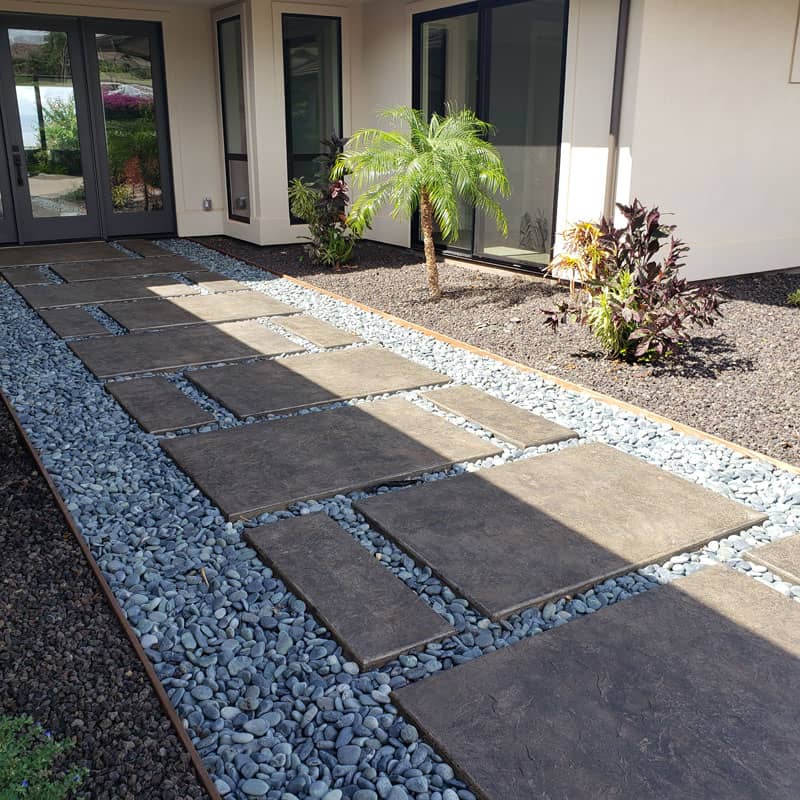
Source: crescenthomesmaui.com
Several key factors determine the final cost of your concrete walkway. Understanding these elements is crucial for accurate budgeting.
- Walkway Size and Overall Cost: The size of the walkway directly correlates with material and labor costs. Larger walkways require more concrete, reinforcement, and labor, leading to higher expenses.
- Material Choices: The type of concrete (e.g., standard mix, high-strength mix), reinforcement (e.g., rebar, fiber mesh), and any decorative elements (e.g., stamped concrete, exposed aggregate) significantly influence the material cost. High-strength concrete, for instance, is more expensive than standard mix but offers increased durability.
- Labor Costs: Labor costs vary based on project complexity (e.g., intricate designs, extensive excavation) and geographical location. Labor rates are generally higher in urban areas and for projects requiring specialized skills.
- Additional Costs: Permits, excavation (if needed), site preparation (e.g., grading, compaction), and disposal of excavated materials add to the overall cost. These costs can be substantial, particularly if the site requires significant preparation.
| Size (sq ft) | Material Cost (USD) | Labor Cost (USD) | Total Cost (USD) |
|---|---|---|---|
| 100 | 500-800 | 500-1000 | 1000-1800 |
| 200 | 1000-1600 | 1000-2000 | 2000-3600 |
| 300 | 1500-2400 | 1500-3000 | 3000-5400 |
| 400 | 2000-3200 | 2000-4000 | 4000-7200 |
Note: These are estimated costs and can vary based on location and specific project requirements.
Concrete Walkway Design and Cost Implications
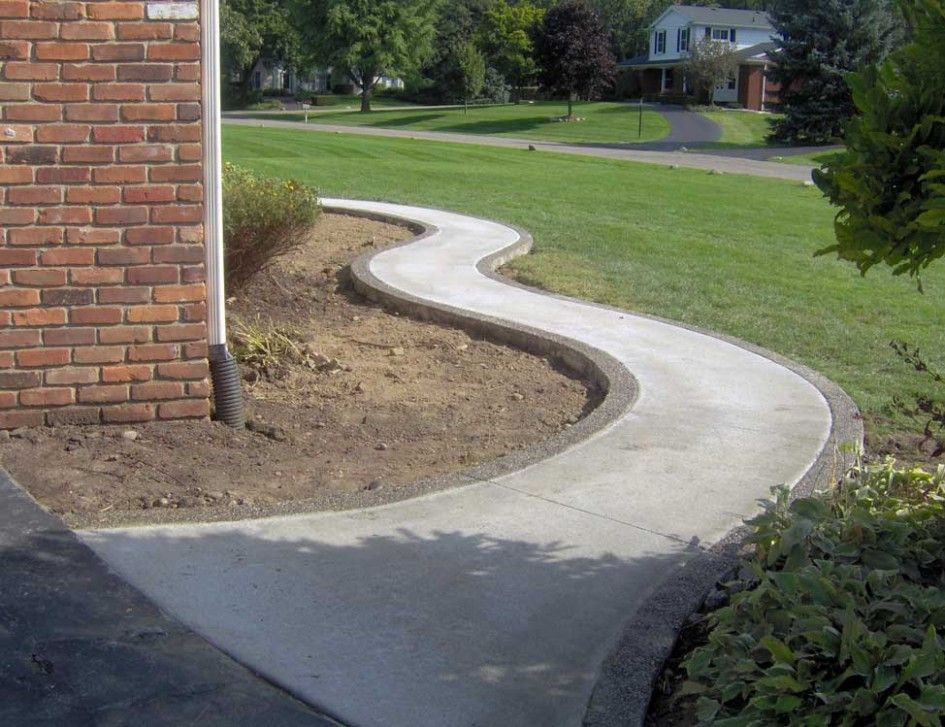
Source: pinimg.com
Design choices significantly impact the final cost. Simple designs are generally less expensive than complex ones.
- Design Features and Costs: Curves, patterns, borders, and intricate designs increase both material and labor costs. Straightforward designs are more cost-effective.
- Poured vs. Stamped Concrete: Stamped concrete, which creates patterns and textures, is more expensive than poured concrete due to the added labor and materials required for stamping and coloring.
- Finishing Techniques and Pricing: Different finishing techniques (e.g., broom finish, exposed aggregate) have varying costs. Exposed aggregate, for instance, requires more labor and specialized materials.
Example Walkway Designs and Estimated Costs:
- Simple Straight Walkway (100 sq ft): $1000 – $1800
- Curved Walkway with Border (200 sq ft): $2500 – $4500
- Intricate Stamped Concrete Walkway (300 sq ft): $4000 – $7000
Integrated Features: Adding features like lighting or drainage systems increases the overall cost, but can significantly enhance both the functionality and aesthetics of the walkway.
Finding and Hiring Contractors for Concrete Walkway Installation
Selecting a qualified and reputable contractor is essential for a successful project.
- Finding Reputable Contractors: Seek recommendations from friends, family, or online review platforms. Verify licenses and insurance.
- Obtaining Multiple Quotes: Obtain at least three quotes from different contractors to compare pricing and services.
- Reviewing Contracts: Carefully review contracts before signing, paying close attention to payment schedules, timelines, and liability clauses.
- Key Questions for Contractors: Inquire about experience, licensing, insurance, warranties, and the specific materials and techniques they will use.
Contractor Quote Checklist:
- Detailed project description
- Materials specifications
- Labor costs breakdown
- Timeline for completion
- Payment schedule
- Warranty information
- References
DIY Concrete Walkway Installation: Cost Savings and Considerations
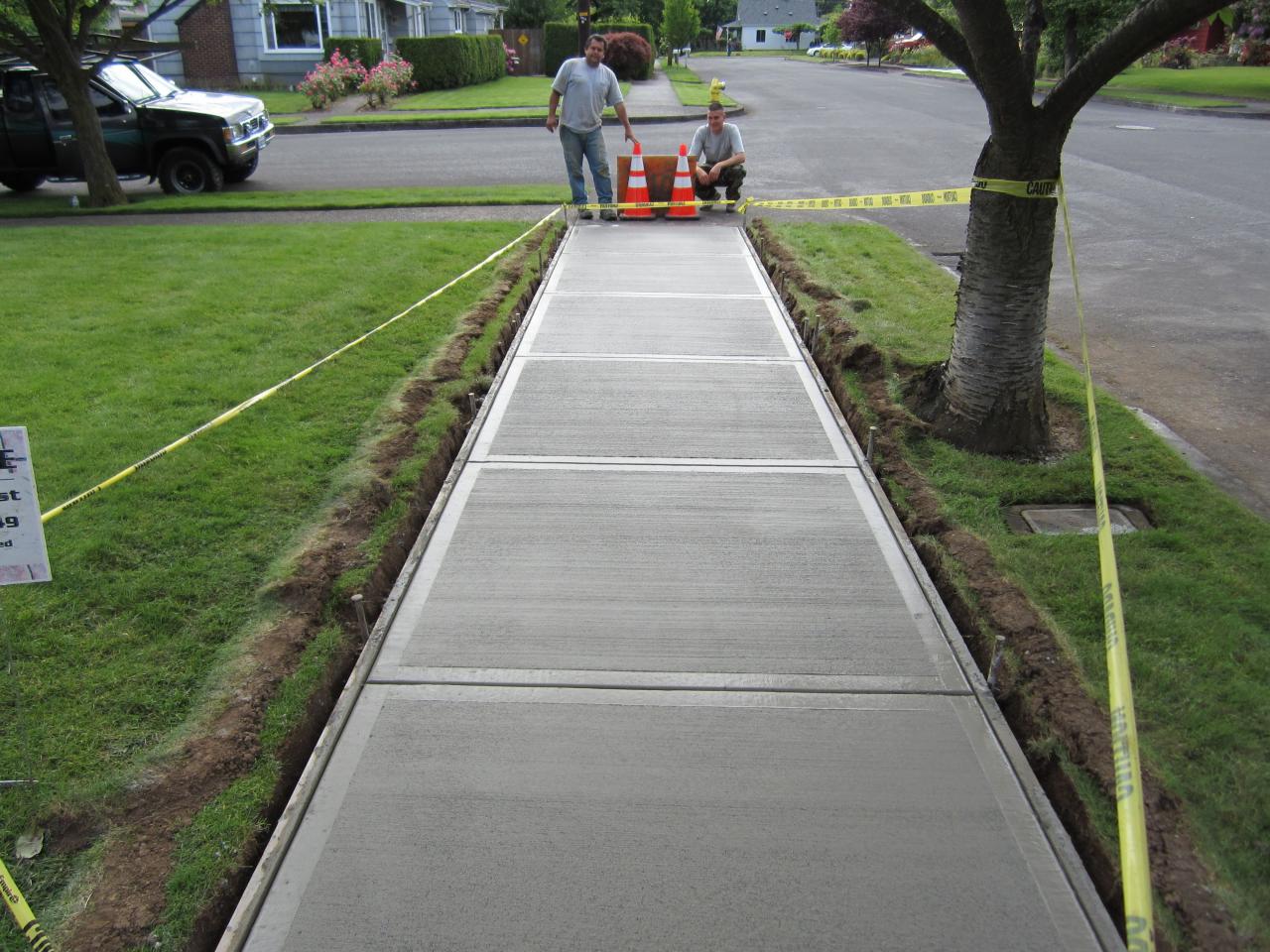
Source: pinimg.com
Undertaking a DIY project can potentially save money, but requires significant effort, skill, and planning.
- Step-by-Step Guide: 1. Site preparation and excavation. 2. Formwork construction. 3. Reinforcement placement. 4. Concrete pouring and leveling. 5. Finishing and curing.
- Cost Savings: DIY projects can save on labor costs, but material costs remain similar.
- Necessary Tools and Materials: Shovels, wheelbarrows, forms, rebar, concrete mixers, floats, trowels, etc. Costs vary depending on quantity and quality.
- Risks and Challenges: Inadequate preparation, improper mixing, and poor finishing can lead to cracks, uneven surfaces, and premature deterioration.
- Material Quantity Calculation: Calculate the volume of concrete needed based on the walkway’s dimensions and thickness. Online calculators can assist in this process.
Maintaining a Concrete Walkway: Long-Term Cost Considerations
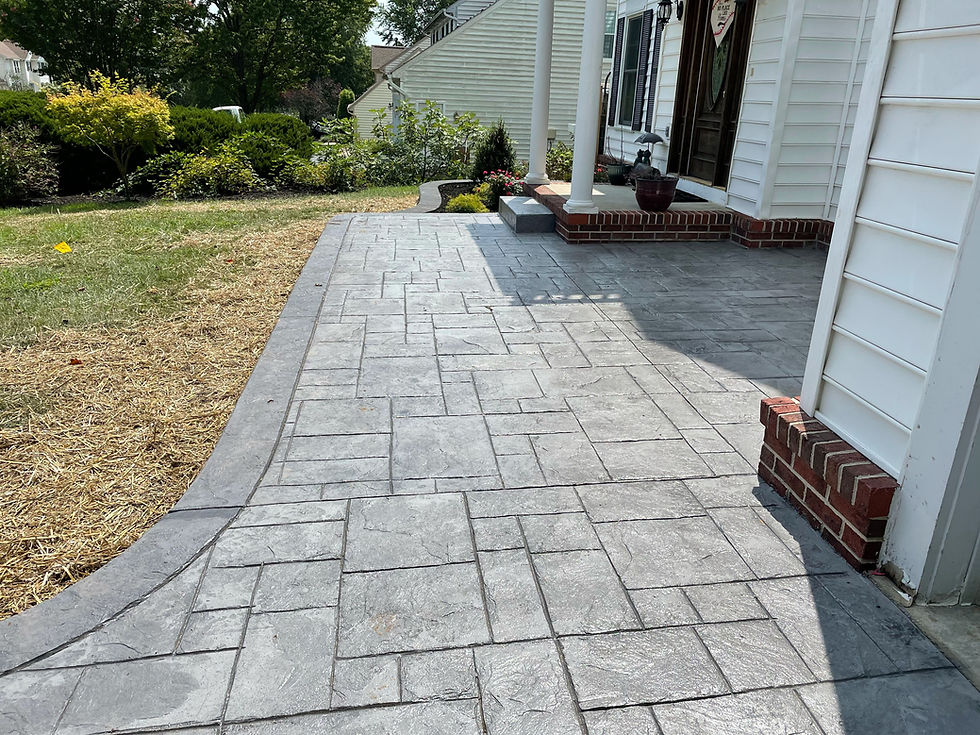
Source: wixstatic.com
Regular maintenance extends the lifespan of a concrete walkway and minimizes costly repairs in the long run.
- Routine Maintenance: Regular cleaning, weed removal, and crack sealing are crucial.
- Repair Costs: Crack repair, resealing, and more extensive repairs can be expensive if neglected.
- Neglecting Maintenance: Ignoring maintenance leads to accelerated deterioration, requiring more extensive and costly repairs later.
- Preventative Maintenance: Sealing the concrete every few years prevents water damage and extends its lifespan.
| Task | Frequency | Cost per Task (USD) | Total Cost (10 years) (USD) |
|---|---|---|---|
| Cleaning | Annually | 25-50 | 250-500 |
| Weed Removal | Semi-annually | 10-20 | 100-200 |
| Crack Sealing | Every 3 years | 100-200 | 300-600 |
| Sealing | Every 5 years | 200-400 | 400-800 |
Note: These are estimated costs and can vary based on walkway size and specific conditions.
Question Bank: Cost To Install Concrete Walkway
What is the average lifespan of a concrete walkway?
With proper installation and regular maintenance, a concrete walkway can last for 20-30 years or even longer.
Can I install a concrete walkway myself?
While possible, DIY installation requires significant skill and effort. Improper installation can lead to cracking and other issues. Consider your experience level before attempting a DIY project.
What type of concrete is best for a walkway?
The best type depends on your budget and aesthetic preferences. Options range from standard concrete mixes to more expensive, high-strength, h or decorative blends.
What permits are typically required for a concrete walkway?
Permit requirements vary by location. Check with your local building department to determine the necessary permits before starting the project.
How often should I seal my concrete walkway?
Sealing every 2-3 years helps protect the concrete from weathering and staining, extending its lifespan.
